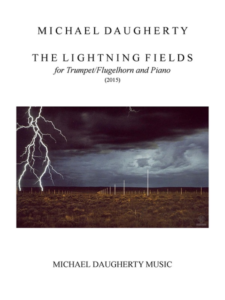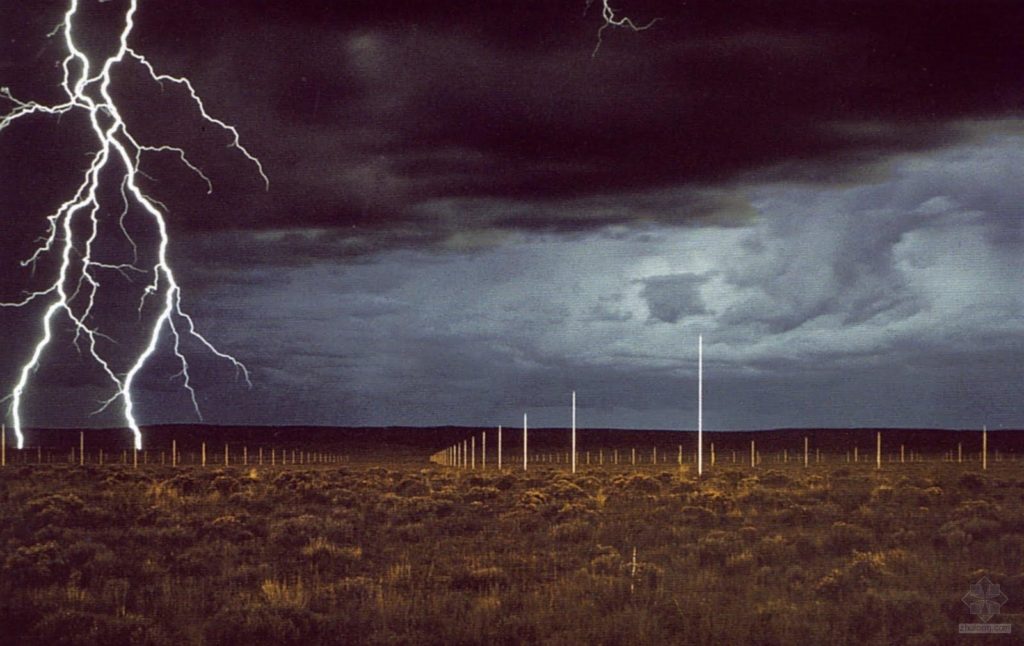The Lightning Fields
for trumpet/flugelhorn and piano (2015)
I. Griffith Observatory, Los Angeles, California
II. The Lightning Field, Catron County, New Mexico
III. Marfa Lights, U.S. Route 67, Marfa, Texas
IV. Times Square, New York City
Instrumentation: Trumpet/flugelhorn and piano
Publisher: Michael Daugherty Music
Duration: 20 minutes
World Premiere: May 26, 2015 / International Trumpet Guild Conference, Columbus, Ohio / Craig Morris, trumpet and flugelhorn; Asiya Korepanova, piano

Program Note:
The Lightning Fields for trumpet/flugelhorn and piano was commissioned by the International Trumpet Guild and premiered by Craig Morris, trumpet and flugelhorn with Asiya Korepanova, piano at the ITG Conference at Columbus, Ohio on May 26, 2015. Twenty minutes in length, my composition is inspired by four unique nocturnal fields of natural or artificial light phenomena found in North America.
The Griffith Observatory is perched high above the city of Los Angeles on Mount Hollywood. It is from this precipice at night that I have experienced the breathtaking view of endless city lights, as far as the eye can imagine, reaching into the distant Pacific Ocean. In the first movement, I imagine a lonely figure, perched high upon the Observatory precipice at midnight, playing melancholy, bluesy music on a flugelhorn.
“The Lightning Field,” the second movement, refers to an extraordinary modernist installation located in a remote area of New Mexico created by Walter De Maria in 1977. A frequent target of lightning strikes, the installation consists of 400 stainless steel poles symmetrical arranged in a one mile square grid. The music I have created for the trumpet falls into abstract patterns of time and infinite space with an occasional bolt of lightning interrupting the proceedings.
According to legend, the “Marfa lights,” also know as the “ghost lights,” can be seen after nightfall outside of Marfa, Texas off of U.S. Route 67, near the Rio Grand River and the Mexican border. In the third movement, which is played on flugelhorn, I have created a ghostly soundscape of mariachi melodies. The music unfolds in slow-motion like tumbleweeds rolling across a dusty Texas plain.
In the fourth and final movement, the trumpet performs soaring feats of electric virtuosity to suggest the the fantastic neon lights and electric billboards of Times Square, New York City. We occasionally take a detour to West 52nd Street, a side street of Times Square. It is here that I evoke the specters of trumpet jazz legends such as Miles Davis, Clifford Brown and Roy Eldridge. Back in the 1950s, they haunted the jazz clubs of West 52nd Street, such as Birdland and the Three Dueces, which disappeared into oblivion long ago.
–Michael Daugherty

